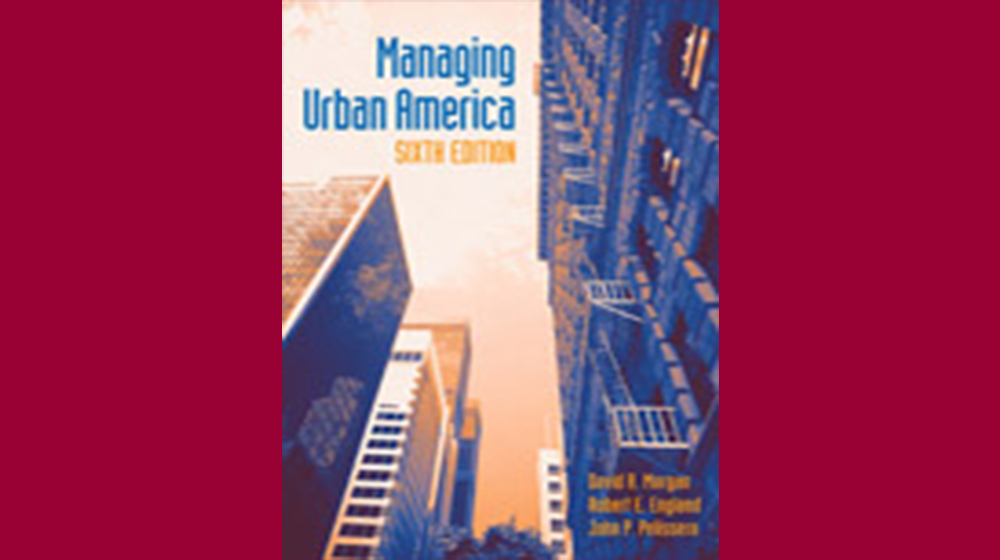John P. Pelissero, PhD
Professor, Political Science

Managing Urban America
CQ Press: 2006
(ISBN: 1-56802-930-6)
Synopsis:
Urban managers continue to do what they have done for decades: manage conflict, adapt to shifting demographics, balance their own source funds with intergovernmental revenues, respond to federal and state mandates, negotiate with other localities in their same metropolitan area, and deliver goods and services. But managers today are confronted with new challenges in what has become "fend for yourself" federalism. City executives must do more with less while at the same time figure out ways to harness the power of new technologies and react to a globalized world and economy. It is no wonder then that even great managers can fail at urban administration. To succeed, they must understand the nature of community values, the pitfalls of bureaucratic inertia, and the craft of leadership—that is, the politics of urban management.
This book, co-authored by David R. Morgan, Robert E. England, and John P. Pelissero, offers a forward-looking account of this new urban management environment. Featuring discussions of the New Public Management model, the impacts of globalization, changes in service delivery, urban planning, economic development, and program evaluation, they discuss key productivity enhancements that emphasize results and accountability. The authors then focus on the impact of citizen participation, e-government, the events of 9/11, and intergovernmental relations as examples of significant environmental factors that impinge on the management of modern cities.
Synopsis:
Urban managers continue to do what they have done for decades: manage conflict, adapt to shifting demographics, balance their own source funds with intergovernmental revenues, respond to federal and state mandates, negotiate with other localities in their same metropolitan area, and deliver goods and services. But managers today are confronted with new challenges in what has become "fend for yourself" federalism. City executives must do more with less while at the same time figure out ways to harness the power of new technologies and react to a globalized world and economy. It is no wonder then that even great managers can fail at urban administration. To succeed, they must understand the nature of community values, the pitfalls of bureaucratic inertia, and the craft of leadership—that is, the politics of urban management.
This book, co-authored by David R. Morgan, Robert E. England, and John P. Pelissero, offers a forward-looking account of this new urban management environment. Featuring discussions of the New Public Management model, the impacts of globalization, changes in service delivery, urban planning, economic development, and program evaluation, they discuss key productivity enhancements that emphasize results and accountability. The authors then focus on the impact of citizen participation, e-government, the events of 9/11, and intergovernmental relations as examples of significant environmental factors that impinge on the management of modern cities.
